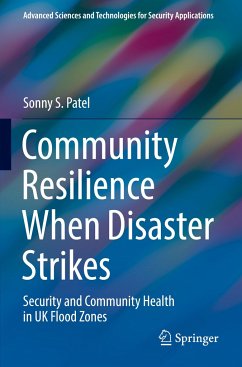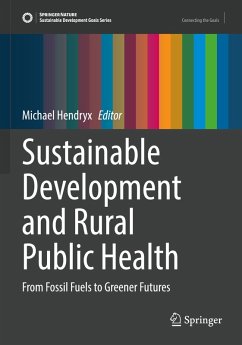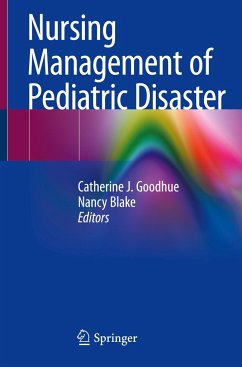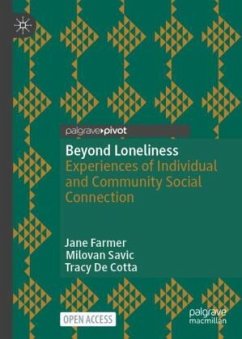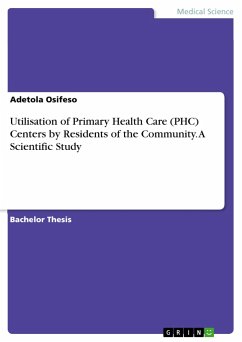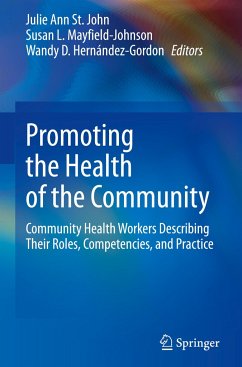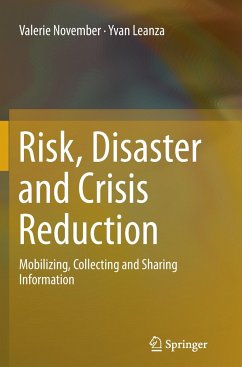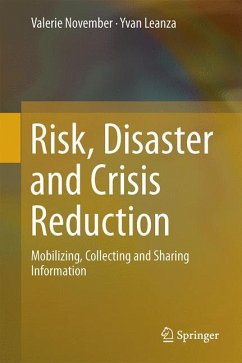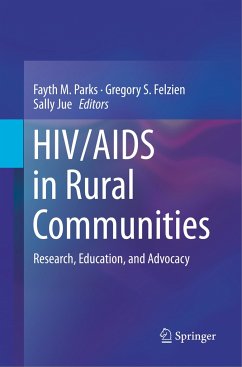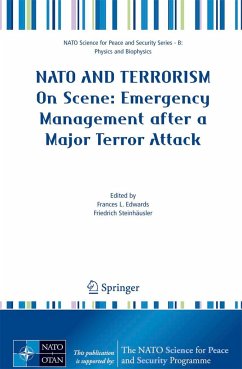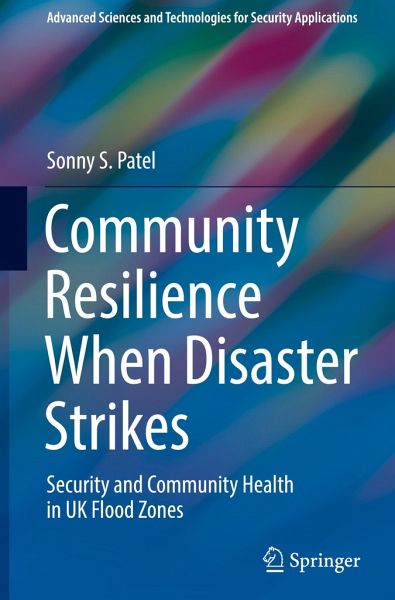
Community Resilience When Disaster Strikes
Security and Community Health in UK Flood Zones
Versandkostenfrei!
Versandfertig in 6-10 Tagen
76,99 €
inkl. MwSt.
Weitere Ausgaben:

PAYBACK Punkte
38 °P sammeln!
This book addresses the operationalization of community resilience in the United Kingdom (UK) in connection with severe floods. Written for early academic professionals, students, and community practitioners, it investigates the educational and practical meaning and application of community resilience using a UK-centric local-level case study. Exploring the perceptions of both those who have been affected by a natural hazard and those who have not, the book reveals how trust, community resources, and neighborhood security can offer effective ways of bringing communities together after a natura...
This book addresses the operationalization of community resilience in the United Kingdom (UK) in connection with severe floods. Written for early academic professionals, students, and community practitioners, it investigates the educational and practical meaning and application of community resilience using a UK-centric local-level case study. Exploring the perceptions of both those who have been affected by a natural hazard and those who have not, the book reveals how trust, community resources, and neighborhood security can offer effective ways of bringing communities together after a natural hazard.
The author introduces the topic of community resilience as it applies to disasters in Chapter 1 and its implications for securing and improving the wellbeing of disaster-affected communities in Chapters 2 and 3. In Chapter 4, the lessons learned contributing to the available information and research on community resilience are reviewed. Finally, the author offers recommendations and outlines future directions in coping with the uncertainty and insecurity caused by natural hazards in Chapter 5.
The author introduces the topic of community resilience as it applies to disasters in Chapter 1 and its implications for securing and improving the wellbeing of disaster-affected communities in Chapters 2 and 3. In Chapter 4, the lessons learned contributing to the available information and research on community resilience are reviewed. Finally, the author offers recommendations and outlines future directions in coping with the uncertainty and insecurity caused by natural hazards in Chapter 5.



